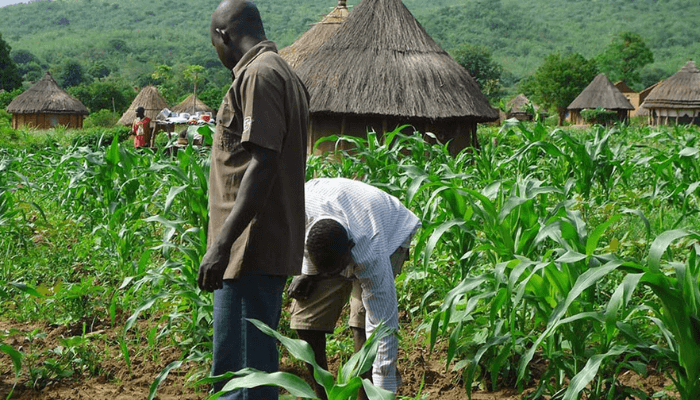Agriculture is synonymous with food security and the welfare of majority of Nigerians – in fact, it is a major driver of economic growth that contributes about 42.07% to Nigeria’s Gross Domestic Product (GDP). Based on these indispensable roles played, adequate and reliable data in the sector remains is a necessity for policymakers, research and investment.
Supposedly, all agricultural policies, decisions and actions must emanate from reliable data generated and updated periodically, and where decisions were made not evidenced on accurate data, a nation will continue to grapple with inefficiencies, food insecurity and misplacement of priorities in agricultural sector. Despite the importance of agricultural data production, Nigeria has not conducted a comprehensive agricultural census since 1993/94.
The results of some survey-census exercises were not analysed while another attempt ended at the pilot stage in the year 2022, thus resulting in agricultural data gap. With current advancement in information and communication, security and sustainability concerns, remind agro-experts the kind of old-fashioned surveys relied upon in the country were obsolete, out-phased and not what is actually needed for any purposeful, meaningful and impactful planning and decision-making to drive the nation on the path of food security, wealth and job creation and prosperity amongst rural families in a dynamic and fast-changing times.
In hindsight, a repeat of 1993/94 agricultural census or any survey of its nature is no longer going to yield the desirable output, direly needed at the moment – and what is needed is a digital farmer database structured to host an encompassing range of personal, social and economic-related information. It should serve as a comprehensive repository of data related to farmers; their geo-locations, biometrics, NIN, BVN, farming practices, land size, crops cultivated, livestock raised, expected output and other value chain relevant activities which will serve as a centralised record-keeping system accessible to governments, researchers, agribusinesses and development organisations for informed decisions about agriculture, food security and rural development.
In today’s Nigeria, no single agency is in possession of this kind of critical decision-making data, neither at the federal nor at any of the 36 states of the federation in a comprehensive manner. Conversely, like-government so also like-farmers, you will be startled and dumbfounded to realise that many big time, real and practicing farmers never know the size of farms they have been cultivating for many decades – indicating deep concern about how farm inputs like fertiliser, seed, insecticide, herbicide and labour could be optimally utilised in the production process as well as whether profit realisation under a situation where the land size is not even known? This worrisome situation remains very similar to most farming communities – you enquire about the actual number of farmers, their farm sizes, quantity of input utilised, production figures, you will receive the same guess answers far from the actual realities on the ground. This disappointing situation of data absence remained similar amongst individuals, groups of farmers, as well as government institutions across local, state and federal.
A well-managed farmer database can revolutionise agriculture by helping governments design better agricultural policies, target subsidies and interventions, and ensure fairer resource distribution; track production trends to prevent shortages, identify vulnerable farmers for aid during flood or drought. It will also assist private investors to target inputs, loans and markets at the same time aid academic, research and innovative breakthroughs.
The question now is, how do we achieve that?
As a matter of unprecedented urgency, it is high time the Federal Government of Nigeria (FGN) lead the formulation of a national policy on robust farmer database and its immediate implementation across all the states of the federation. The FGN should spearhead, coordinate and collaborate with state governments, development partners, researchers and NGOs.
Each state government should be directed to embark on a state-wide data-collection exercise targeting all farmers in their respective farming locations across communities in their entire LGAs that will later be collated at the federal database for national planning.
Aggressive sensitisation and awareness creation campaigns to encourage farmers on the usefulness of keeping records of all their farming activities and cooperate with any government-planned enumeration activity towards developing a national farmer database.
Lest I forget, it is worth noting that, in the year 2017, Anambra State Ministry of Agriculture initiated a commendable, comprehensive digital farmer data that captures all personal, biometric, geo-location and agricultural practice details across many communities in the state which was accessible in one click at the central cyber in the state ministry of agriculture office. This initiative is worthy of understudy, emulation and replication throughout the 36 states of the federation.
–Dr. Musa writes from the National Agricultural Extension and Research Liaison Services, Ahmadu Bello University, Zaria.
We’ve got the edge. Get real-time reports, breaking scoops, and exclusive angles delivered straight to your phone. Don’t settle for stale news. Join LEADERSHIP NEWS on WhatsApp for 24/7 updates →
Join Our WhatsApp Channel










